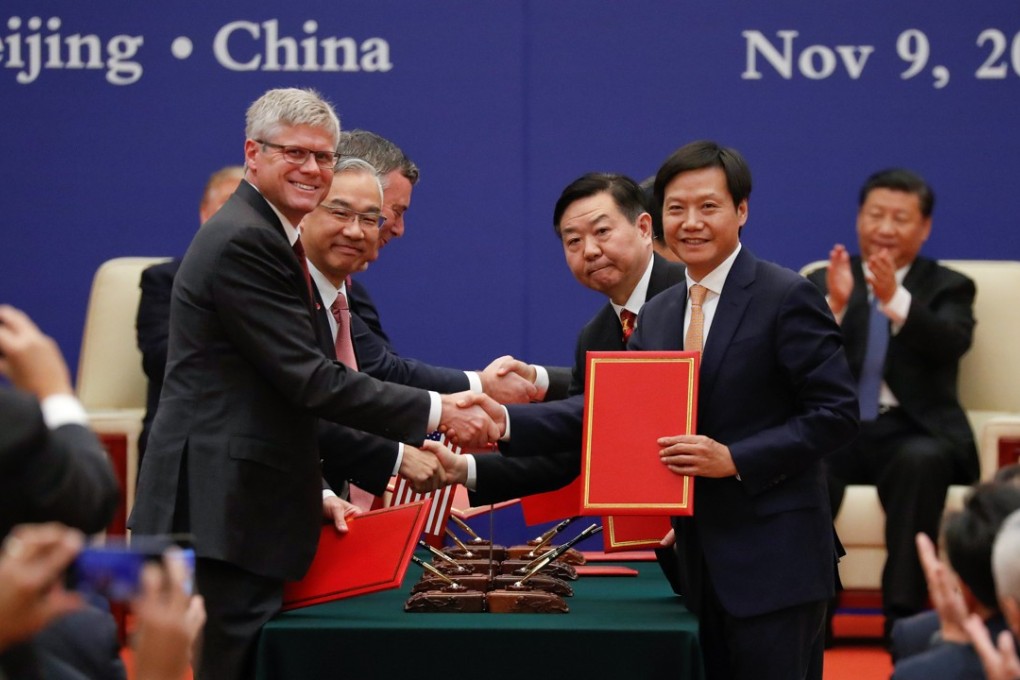Deals galore for US firms from Trump’s China trip, but are the real trade problems being glossed over?
Analysts note that many of the deals in the US$253 billion package lack detail or are simply agreements to talk further, and they do not address the deep-rooted structural issues behind the two countries’ trade imbalance

China handed visiting US President Donald Trump a business deal package worth an eye-popping US$253 billion on Thursday, the biggest in the history of relations between the two countries as Beijing sought to demonstrate its seriousness in soothing Washington’s complaints over a trade imbalance.
The deals, signed in Beijing’s Great Hall of the People as Trump and his Chinese counterpart Xi Jinping looked on, are the biggest achievement of Trump’s three-day “state visit plus”, with traditional topics for US presidents in China, such as human rights, being put on the back burner.
The package includes cooperation deals, purchase agreements and memorandums of understanding. It is mainly about China agreeing to buy more US products, from natural gas to soy beans, in an attempt to defuse tension over what the US has estimated as its US$347 billion trade deficit with China.
“Some of the deals are expected to take years to be completed and some still need more detailed work or are dependent on government reviews,” said Cui Fan, a professor at the University of International Business and Economics in Beijing.
At the same time, other concerns of US businesses such as limited access to China’s markets and intellectual property disputes remained largely unresolved.